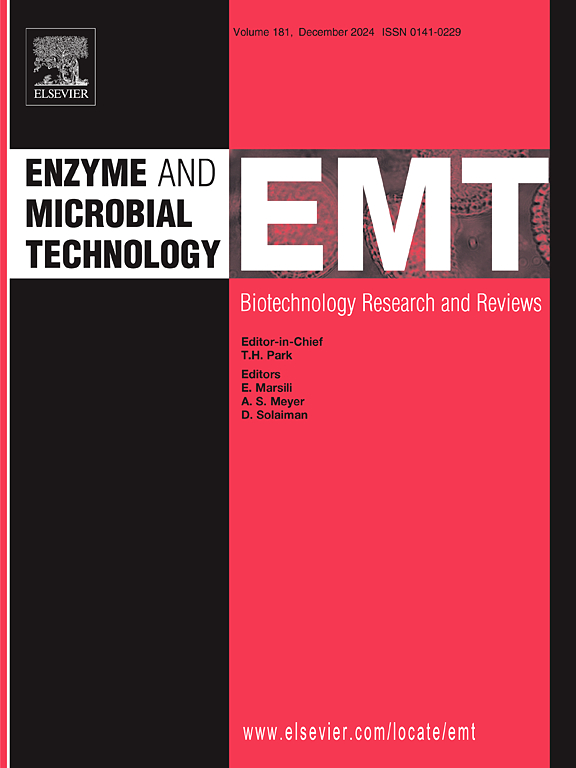Rosmarinic acid production using advanced metabolic engineering strategies
IF 3.7
3区 生物学
Q2 BIOTECHNOLOGY & APPLIED MICROBIOLOGY
引用次数: 0
Abstract
With improved socio-economic conditions and heightened health awareness, modern consumers now prioritize the nutritional and functional attributes of food over basic satiety. Recently, a high value component, rosmarinic acid synthesized in plants have gained attention as functional food ingredients. Traditional strategy of rosmarinic acid production, including chemical synthesis and plant extraction, are limited by environmental concerns, low yields, and high costs. With the development of biotechnology, metabolic engineering is an alternative strategy for the efficient and cost-effective production of rosmarinic acid. This review focuses on metabolic engineering advances featuring three core strategies: dynamic pathway regulation, cofactor recycling, and microbial co-culture systems. These potential innovations hold great promise for significantly enhancing rosmarinic acid yields. In addition, the review evaluates the economic and technical feasibility of large-scale production, emphasizing the addressing of challenges from traditional production methods.
利用先进的代谢工程策略生产迷迭香酸
随着社会经济条件的改善和健康意识的提高,现代消费者现在优先考虑食品的营养和功能属性,而不是基本的饱腹感。近年来,从植物中合成的高价值成分迷迭香酸作为功能性食品原料受到了广泛关注。传统的迷迭香酸生产策略,包括化学合成和植物提取,受到环境问题、低产量和高成本的限制。随着生物技术的发展,代谢工程是高效、低成本生产迷迭香酸的替代策略。本文综述了代谢工程的三个核心策略:动态途径调控、辅因子循环和微生物共培养系统。这些潜在的创新技术有望显著提高迷迭香酸的产量。此外,本文还评估了大规模生产的经济和技术可行性,强调解决传统生产方法带来的挑战。
本文章由计算机程序翻译,如有差异,请以英文原文为准。
求助全文
约1分钟内获得全文
求助全文
来源期刊

Enzyme and Microbial Technology
生物-生物工程与应用微生物
CiteScore
7.60
自引率
5.90%
发文量
142
审稿时长
38 days
期刊介绍:
Enzyme and Microbial Technology is an international, peer-reviewed journal publishing original research and reviews, of biotechnological significance and novelty, on basic and applied aspects of the science and technology of processes involving the use of enzymes, micro-organisms, animal cells and plant cells.
We especially encourage submissions on:
Biocatalysis and the use of Directed Evolution in Synthetic Biology and Biotechnology
Biotechnological Production of New Bioactive Molecules, Biomaterials, Biopharmaceuticals, and Biofuels
New Imaging Techniques and Biosensors, especially as applicable to Healthcare and Systems Biology
New Biotechnological Approaches in Genomics, Proteomics and Metabolomics
Metabolic Engineering, Biomolecular Engineering and Nanobiotechnology
Manuscripts which report isolation, purification, immobilization or utilization of organisms or enzymes which are already well-described in the literature are not suitable for publication in EMT, unless their primary purpose is to report significant new findings or approaches which are of broad biotechnological importance. Similarly, manuscripts which report optimization studies on well-established processes are inappropriate. EMT does not accept papers dealing with mathematical modeling unless they report significant, new experimental data.
 求助内容:
求助内容: 应助结果提醒方式:
应助结果提醒方式:


